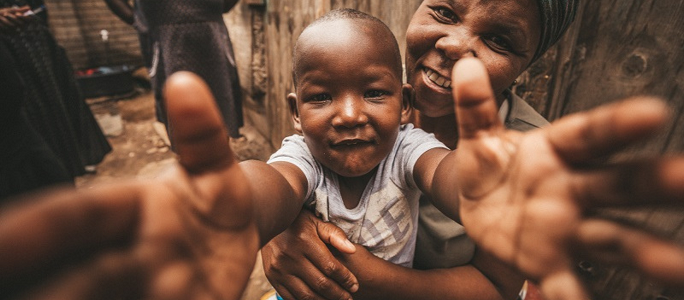
It’s no secret that a person’s earliest life experiences have a significant impact on their future. Children born into a loving, nurturing, safe home with access to good nutrition and enough opportunities to play and learn, for instance, have a better chance at a bright and successful future, than those from under-resourced communities who live and grow up under vulnerable circumstances.
The first 1,000 days is when a child’s brain begins to grow and develop, and are crucial in forming the right foundations for a child’s physical, emotional and cognitive needs to be met in the present and late on in life. Aspects such as their physical growth, language processing, and attention span, among other developmental factors, are formed and developed in this time.
“There’s no exaggeration in saying that the time from birth to around two years old in a child’s life is vital for their development, and we see it daily in our work with children in Alex,” says Mahlatse Mabaso, acting manager of Learning and Development at Rays of Hope.
“We recently had a team of medical professionals volunteer their time to conduct health checks for children in Alex, and 48% of the children were referred for being underweight, stunted, or experiencing other medically concerning health problems. They are simply not meeting their developmental milestones as a direct result of poverty and a lack of access to proper nutrition and care,” she adds.
Malnutrition and a lack of opportunities for physical activity and cognitive engagement can result in irreversible damage to a child’s growing brain, which can lead to the child doing poorly in school and one day earn a good living. This devastating cycle makes it harder for a child and their family to rise out of poverty and enjoy a better, brighter future.
The importance of early childhood development (ECD)
Early childhood development (ECD) is a holistic set of programmes and interventions designed to safeguard the health, wellbeing and rights of children between birth and six years of age.
“Many children in Alex will not receive the required three daily meals, much less one wholesome meal for the day. It’s also not common to find a clean and spacious playground area for children to play safely in Alex,” says Mabaso. “ECD centres like our very own Akanani Centre in Alex play a vital role in underserved communities to help address these challenges.”
The Akanani ECD centre is run by Rays of Hope in the heart of Alexandra Township and provides 60 children with nutritious snacks and meals, and the opportunity to play and learn in a safe and nurturing environment.
However, while the importance of ECD initiatives is increasingly recognised on a governmental scale, ECD funding remains grossly inadequate to meet the holistic needs of young children in the country. The 2024 budget also fell short in allocating enough funds to provide ECD services to all children across the country, considering just a third of three-to-five year olds attend an ECD programme.
NGOs such as Rays of Hope have stepped in to ensure the ECD needs of children living in Alexandra Township in Johannesburg are supported, but can only do so much with limited funding.
The Akanani Centre is run by professional educators and caregivers who facilitate high quality ECD programmes and interventions. Parents are also engaged in this process so they feel supported in providing the right care and nutrition at home, and this ensures that change can happen more holistically.
INFO SUPPLIED.

